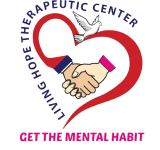Couple therapy can be a valuable treatment option for addressing addiction within the context of a romantic relationship. Here’s an overview of how couple therapy can be beneficial in the treatment of addiction:
1- Relationship Dynamics:
Couple therapy examines the dynamics and patterns within the relationship that may be contributing to or maintaining the addiction.
It helps the couple identify and address any codependent behaviors, communication issues, or unresolved conflicts that may be hindering the recovery process.
2- Shared Understanding:
Couple therapy provides a safe and structured environment for the couple to develop a shared understanding of the addiction and its impact on their relationship.
This shared understanding can foster empathy, improve communication, and facilitate collaborative problem-solving.
3- Rebuilding Trust and Intimacy:
Addiction can often erode trust and intimacy within a relationship. Couple therapy aims to help the couple rebuild trust, improve emotional and physical intimacy, and strengthen their bond.
This can be particularly important in the later stages of recovery, as the couple works to reestablish a healthy and supportive dynamic.
4- Family-Focused Interventions:
Couple therapy can incorporate family-focused interventions, such as involving children or other family members, to address the broader systemic impact of addiction.
This can help the couple develop strategies for supporting each other and their family throughout the recovery process.
5- Relapse Prevention
Couple therapy can assist the couple in developing a comprehensive relapse prevention plan, identifying potential triggers, and practicing effective communication and coping strategies.
This collaborative approach can enhance the couple’s ability to navigate challenges and maintain long-term recovery.
6- Addressing Co-Occurring Issues:
Couple therapy can address any co-occurring issues, such as mental health conditions or relationship problems, that may be contributing to or exacerbating the addiction.
By addressing these underlying factors, the therapy can promote a more holistic and sustainable approach to recovery.
Research has demonstrated the effectiveness of couple therapy in the treatment of addiction, particularly in improving relationship satisfaction, reducing relapse rates, and enhancing overall well-being for both the individual and the couple.
Incorporating couple therapy into a comprehensive addiction treatment plan can be a valuable approach, as it recognizes the significant role that relationships and family dynamics can play in the recovery process.
- Phone: +256777053777 / +256752145870
- Mon-Fri (8am - 6pm)
- livinghopetherapeuticcenter@gmail.com
Edit Content
About Us
We must explain to you how all seds this mistakens idea off denouncing pleasures and praising pain was born and I will give you a completed accounts off the system and expound.
Contact Info
- Rock St 12, Newyork City, USA
- (000) 000-000-0000
- Medizco@gmail.com
- Week Days: 09.00 to 18.00 Sunday: Closed





